#Nutrition and brain health
Explore tagged Tumblr posts
Text
The Sedentary Workplace Dilemma: Can Desk Jobs Raise The Risk Of Dementia?
In today's modern workforce, a significant portion of employees spend the majority of their working hours seated at desks, often in front of computers. This sedentary lifestyle is commonly associated with various physical health concerns, such as obesity, cardiovascular diseases, and musculoskeletal issues. However, in recent years, researchers have begun to explore the potential impact of desk jobs on cognitive health, specifically the risk of developing dementia. This blog post delves into the relationship between sedentary work and dementia risk, as well as strategies to mitigate these potential risks.
#Sedentary workplace#Desk jobs#Dementia risk#Cognitive decline#Brain health#Sedentary lifestyle#Blood flow to the brain#Exercise and dementia#Standing desks#Movement breaks#Cognitive health strategies#Mental stimulation#Nutrition and brain health#Social engagement#Modern workplace challenges#online doctor consultation#doctor consultation#online consultation
0 notes
Text
Holistic tips to support brain health

Incorporate herbal teas
Drink herbal teas known for their cognitive benefits. For instance, ginkgo biloba may improve memory and cognitive function, while rosemary and sage are believed to enhance concentration. Enjoy these teas as part of your daily routine.
Practice forest bathing
Spend time in nature by practicing “forest bathing” or shinrin-yoku. Immersing yourself in natural surroundings can reduce stress, improve mood, and boost cognitive function. Aim for a walk in a forest or park to experience its calming effects.
Engage in mindful breathing
Incorporate mindful breathing exercises into your daily routine. Deep, controlled breaths can increase oxygen flow to the brain, reduce stress, and enhance mental clarity. Try techniques such as diaphragmatic breathing or alternate nostril breathing.
Eat brain-boosting superfoods
Incorporate superfoods that naturally support brain health into your diet. Examples include:
Avocados: Rich in healthy fats and antioxidants.
Chia Seeds: Packed with omega-3 fatty acids.
Beets: Known to improve blood flow to the brain.
Grow your own herbs
Cultivate herbs like basil, mint, and lemon balm in your garden or kitchen. These herbs not only add flavor to your meals but also offer cognitive benefits and stress-relief properties.
Practice Tai Chi or Qigong
These ancient Chinese practices combine gentle movement, meditation, and deep breathing. Both Tai Chi and Qigong promote relaxation, balance, and mental focus, making them excellent for brain health.
Incorporate fermented foods
Include fermented foods like kimchi, sauerkraut, and kefir in your diet. These foods support gut health, which is increasingly recognized for its connection to brain health and mood regulation.
[photo from Pinterest]
#it girl#that girl#clean girl#hyper feminine#becoming that girl#glow up tips#weight loss#healthy girl#pink pilates girl#this is what makes us girls#health tips#dream girl tips#tips#mental health tips#advice#brain health#that girl moodboard#that girl aesthetic#it girl moodboard#it girl energy#pink pilates princess#pinterest girl#healthy diet#healthcare#wellness and health#mental health#health & fitness#health and wellness#healthylifestyle#nutrition
84 notes
·
View notes
Text

Set your day up right! I have been enjoying these breakfasts by EatingWell, with my own twist on them. I hope they inspire you to try something new. If you're bored with what you eat, it's time to switch it up! What does your breakfast look like?




#breakfast#healthy breakfast#guthealth#gut health#brain health#brain food#food#foodlover#foodporn#plant based#vegan#vegetarian#recipes#vegan recipes#healthy recipes#meal ideas#breakfastofchampions#vegan breakfast#breakfast ideas#Nutrition#health tips#Healthy#Health#heathy living#healthy lifestyle#healthy habits#healthy foods#healthy life
66 notes
·
View notes
Text
having a lot of thoughts about eating disorders + how some of us end up developing chronic illnesses directly because of the physical effects of our eating disorders and how Cruel doctors can be about that and just trying to untangle so much shame and blame from that experience rn
#personal#vent#eating disorder tw#disability#idk. i don't quite have the words for this right now but#had another meeting with my doctor where they said yeah its your fault that you are now physically disabled for life#(literally i was chronically ill and physically disabled before i even developed an eating disorder because of CAH and comorbidities but#(they love to ignore that !)#which is like. i do not tie any morality to health and it should just be#a completely neutral statement. that my eating disorder caused other physical complications#they said i'm going to have orthostatic problems the rest of my life.#'since your gastroparesis was caused by your eating disorder that means there is no point in treating it'#which is so funny bc literally every time i see her my dietitan wants me to get a feeding tube! lmfao!!!!#i am actually doing pretty well in recovery in terms of meeting my energy needs through food. but i stopped being able to orally supplement#so my dietitan wants a tube for ARFID nutrient reasons. supplemental nutrition etc etc. and she thinks it will help gastroparesis symptoms#they also think i have osteoporosis and want to test me for that#when i had to use forearm crutches/ wheelchair because of physical ed complications doctors were SO fucking rude even though they were#the ones PRESCRIBING IT!!! like!!! you all are the ones telling me i HAVE to do this!#idk i also have a friend with permanent brain damage. from seizures in the refeeding process#and her doctors are so fucking rude to her all the time.#it makes me so mad
51 notes
·
View notes
Text
What are the risks and side effects of the keto diet on mental health? A Complete Guide
Benefit from knowing the mental health risks and side effects of the keto diet in 2023 and 2024. This comprehensive guide delves into the short-term and long-term effects on anxiety, depression, mood swings, cognitive function, and more. Get practical recommendations and the latest research to make informed nutritional choices for your mental health.
#Keto Diet#Mental Health#Side Effects#Risks#Nutrition#Brain Health#Anxiety#Depression#Mood#Cognition#Sleep#Nutrient Deficiencies#Hormones#Wellbeing#DietCulture#Disordered Eating#Supplementation#Professional Guidance#Mediterranean Diet#Plant Based Diet#Low Carb#Weight Loss#Health#Self Care#Stress Management
2 notes
·
View notes
Text
for the mind - CPTSD recovery
For the most part, I can't speak for everyone and everything - but since we know mental health support lacks in general I don't think is farfetched to say but - with the way the modern world is set up to be so atomized, individualized - it's really challenging for someone with PTSD/C-PTSD to recover. I mean COME ON. hyper individualism is so forced upon us, which is no unnatural - so some of us have been forced to endure things that aren't meant to be endured alone. enough self love, it's time for community love sometimes. I am firmly adamant about this, and we don't talk about this enough. anyways, here are some tools I wish more of us had easy access to:
MDMA
psilocybin
ketamine
racemic
... meanwhile, alcohol is so socially accepted that casual alcoholics walk around, ignorant to themselves and stubborn. poisoning their bodies and each other with the meanness that grows with each drink. LOLOLOLOLOLOLOLOLOLLLLLLLLZZZZZZZZ.
(I laugh but it's also sober and sad. what a mess this is.)
#mental illness#mental health#psilocybin mushrooms#mushrooms#adhd brain#brain health#goodness#pure mdma#healing#health#health and wellness#health & fitness#health and nutrition#health and safety#compassion#paradigm shift#paracosm#love#self love#love yourself#new start#reality shifting#current reality#beauty#art#consciousness#strength#heartbreak#desired reality#virtual reality
3 notes
·
View notes
Text
Your mental health is influenced by your nutrition. Brain health directly correlates with your gut health. Trauma disrupts your gut biome, your kidneys & liver — the body’s natural detoxification system. The more you hold in, the more sluggish your body becomes in extracting nutrients and clearing toxins from your intestines. The more that remains stuck, the more likely it later develops into the symptoms which exasperate genes that trigger disease.
You were perfectly designed to be healthy, and somewhere you accepted the belief that outside forces could disrupt and bring dysfunction to your inherently healthy system of being — yes there may be genetic predispositions, but it is the overwhelming influence of the ‘nurture’ aspect of the environment over ‘nature’ that perpetuates the existence of illness and disease.
We exist in a society that thrives on extremes and treating symptoms rather than the root of the suffering.
#I’m just getting my thoughts out.#the neurons of my brain be firing and connecting.. thank the creator for neuroplasticity#mind and body health#spiritual nutrition#feed your mind and body wonderful things
5 notes
·
View notes
Text
The Mindful Eating Technique: Increase Brain Power, Improve Brain Health
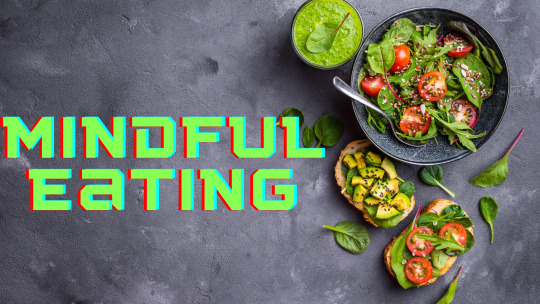
The Journey of Mindful Eating: Choosing an Awareness- and Wholeness-Centered Lifestyle
The more we learn about mindful eating, the more we realize that this is a practice that goes beyond the plate and the act of eating. It's a way of thinking and living that asks us to be mindful of everything about our relationship with food, including meals. Let's investigate more aspects of mindful eating and apply its ideas to different areas of our lives.
Responsible Hydration: The Vital Spirit
It is possible to approach the act of drinking water with intention, just as we can think about our meals with the practice of mindfulness. As the clear, life-giving liquid hydrates and regenerates your body, pause to appreciate it. As you take a sip, pay attention to the sensation and express thankfulness for the vital role that water plays in your health. This mindful method of drinking water enhances the idea of mindful eating by encouraging a comprehensive relationship with the food we eat.
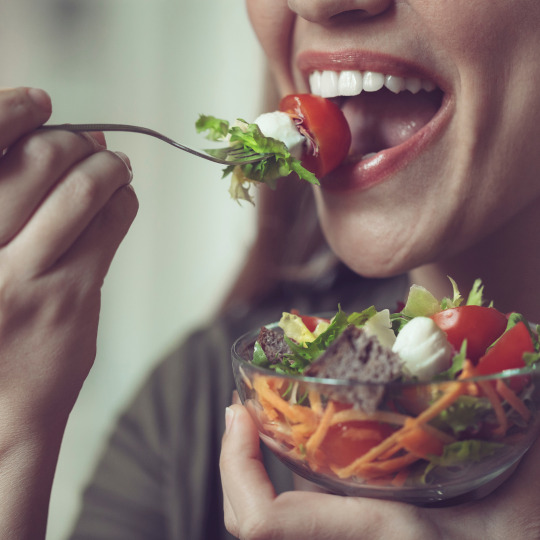
Using Food to Promote Mental Health: A Music of Senses
In addition to providing physical nourishment, mindful eating has significant effects on mental health. During meals, using all of our senses produces a piece of sensory music that speaks to our thoughts and feelings. We develop a concentration that permeates our mental state as we relish the hues, textures, and tastes. Eating mindfully turns into a self-care routine, a break from the stresses of everyday life, and a chance to strengthen our bonds with ourselves.
Consciously Moving: The combination of Form and Air
The practices of mindful eating are enhanced when we involve mindful movement into our everyday lives. Mindful movement, such as taking a relaxing walk before dinner or practicing yoga before breakfast, helps us to feel more connected to our bodies. We prime our bodies and minds for the next round of nourishment by bringing our breath and movement into peace. This thoughtful method creates an effective dance between our breath, body, and the food we eat, expanding the practice of mindfulness beyond the act of eating.
Cooking with Awareness: A Pleasant Meditation

Eating mindfully is an art that starts long before the meal is even taken. A silent activity, mindful cooking asks us to be totally involved in the kitchen. Cooking involves chopping vegetables, measuring ingredients, and mixing containers. By preparing food mindfully, we can turn cooking into a kind of meditation and create our meals with intention and positive energy. The delight of cooking mindfully lies not only in the finished product but also in the process of creating it.
Reflective Thought: Promoting Appreciation and Awareness
After consuming food with awareness, pause to think. Thanks to for all the food you've been eating and the work that went into preparing it. Think back on the feelings, ideas, and experiences you had during the meal. This reflective moment strengthens the mindful eating process and starts a chain reaction of awareness that spreads to other areas of our lives besides the dinner table.
Designed Dining in Group Environments: Along Moments of The Presence
An opportunity to introduce mindful eating into everyday life is presented by sharing a meal with others. Talk to people who mean something to you, enjoy each other's company, and value the bonding experience of eating together. Through developing a mindful atmosphere in social settings, we support everyone's happiness that extends beyond personal health.
Children's Mindful Eating: Developing Positive Connections with Food
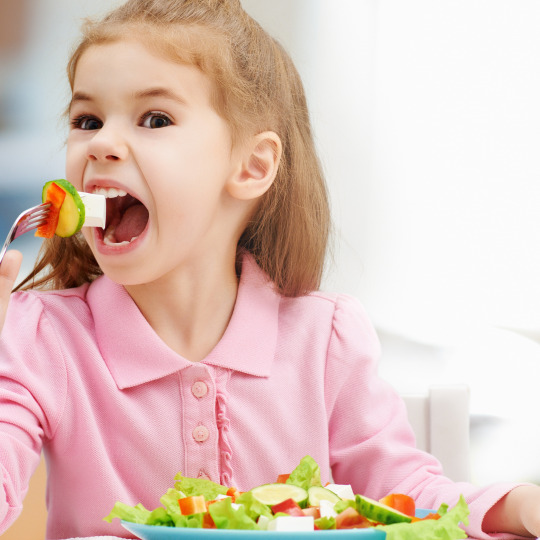
The starting point for a lifetime of healthy habits begins when children are taught the principles of mindful eating. Tell them to taste every bite, use all of their senses, and pay attention to what their bodies are saying. Children who are raised with mindfulness taught in them have a better capacity to make thoughtful decisions and form healthy connections with food.
The Development of Mindful Eating: A Continuous Habit
Eating mindfully is a lifetime practice that changes with us rather than a destination. We find that it weaves into the fabric of our everyday lives rather than being limited to particular moments as we continue to investigate its breadth. It's a way of life that works for everything, from private dinners to large parties, morning routines to nighttime thoughts.
Mindful Eating's Benefits: Nourishing the Body and Mind
1. Improved Digestion and Nutrient Absorption
Eating mindfully and slowly promotes better digestion, which in turn helps our bodies absorb important nutrients.

2. Weight Management
Mindful eating promotes enhanced control of calories and helps with weight management by raising awareness of hunger and fullness clues.
3. Better Relationship with Food
By practicing mindful eating, one can reduce psychological and quick eating and develop a more positive connection with food.
4. Less Stress and Anxiety
Eating mindfully calms down dinnertime and simplifies the tension and anxiety that come with rushed or distracted eating.
5. Increased Pleasure from Food
Eating becomes more enjoyable when we take the time to appreciate the tastes and textures of our food, turning it from an everyday task into an enjoyable one.
Empathy-Building Techniques for Mindful Eating: Raising Awareness
1. Building Gratitude

At every single meal, take a moment to express your gratitude for the food's nourishment and the work that went into preparing it.
2. Responding to the Senses
Pay attention to the flavors, textures, and colors of your food. To fully appreciate the sensory richness of your meal, use all of your senses.
3. Mindful portioning
Use smaller plates and pay attention to how much you eat to prevent eating too much. Before picking up for more, take the time to fully experience every bite.
4. Removing Distractions
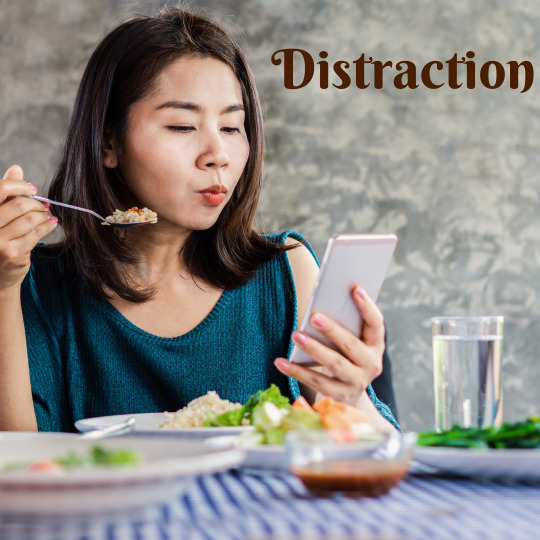
Establish a specific area for eating that is free from electronics and television. This allows you to enjoy your meal in the moment.
5. Chewing and Savoring
Chew mindfully, taking time to appreciate the tastes and textures of your food. These easy steps enhance digestion and help you develop a greater connection with what you are eating.
6. Paying Attention to Cues of Hunger and Fullness
Be aware of your body's messages. Consume food only when you're hungry and quit when you're full. The concepts of careful eating are in line with this instinctive eating style.
7. Mindful Snacking
Include snacks in the mindful eating routine. Select healthy options and take breaks or multitask while having fun with them.
In general, mindful eating becomes a lifestyle—a focused, conscious method of healthy one's own physical and mental well-being—rather than just a technique. By expanding the practice to include multiple meals, we invite mindfulness into every aspect of our relationship with food, converting it into an intentional act of self-honor, a celebration of life, and an endless dance of presence.
#mindfuleating#food good for brain#mindful nutrition#mindfulness and weight loss#mindful eating weight loss#mindful eating#mindful diet#health conscious eating#mindful eating techniques
2 notes
·
View notes
Text
I redownloaded my old calorie counter app that I used to use for disordered eating purposes when I was a teenager, but this time it's so that I can study macronutrients and understand them properly. I don't really care about weight but I want to start eating a bit more healthily (at least more balanced) since eating unhealthily combined with college stress has been giving me the worst intestinal issues. I kind of just want to understand food and nutrients so I am able to know how to eat healthy
#tw talk of disordered eating in the tags#I put my calorie limit at 2100 instead of 1200 like I used to!#I'm kinda sad tbh. Quarantine brain gave other people some wild ass moments but it just made me work out until my body started falling apar#it's weird cause when I started researching nutrition recently#my feed became filled with anti-ana health professionals#and like ed recovery videos#I feel like that says something but I'm not sure what
2 notes
·
View notes
Text
🌙 Sleep Better with Melatonin 🌙

Did you know that melatonin, a hormone that regulates sleep, is produced in the brain and found in foods like nuts, bananas, cherries, pineapples, and grapes? 🍇🍌🍒
This natural supplement is effective for jet lag and day/night shifts, but has little effect on insomnia caused by anxiety. 😴
As someone who has struggled with sleep issues, I've found melatonin to be a game-changer. Give it a try and see if it works for you! 🌟

5 notes
·
View notes
Text
if the food i have ordered does not make me feel like my body is no longer shutting down on me I'm gonna be scaredddd 🤪
#i might just be malnourished bc i have no idea the last time i ate a vegetable was#ordered burrito bowl in hopes that will have enough nutrition#will probably just make me shit my brains out#but maybe it will cure me!#it better bc i dont have health insurance 🤪
3 notes
·
View notes
Text

Health Benefits of Watermelon
Watermelon is full of water and is a good source of electrolytes, which help you stay hydrated and replace the minerals that are lost when you sweat. Watermelons owe their gorgeous red color to the powerful antioxidant lycopene, just like tomatoes.
1. Good for Your Heart
2. Good for Your Bones
3. Improves Athletic Performance
4. Reduces Body Fat
5. Keeps You Hydrated
6. A Natural Diuretic—helps increase the flow of urine. Regular consumption of watermelon helps to ease strain on the kidneys while your body eliminates excess fluids.
7. Reduces Inflammation
8. Reduces Brain Fog—Watermelon is a good source of potassium, which is absolutely essential for our bodies to function properly. Low potassium levels can lead to mental fogginess.
9. Improves Immunity—Watermelon is a delicious way to get your daily dose of Vitamin C.
10. Watermelon Gets Better as It Ripens—As the flesh of the watermelon ripens and turns from white to pink to red, it doesn’t just get sweeter and more delicious but also more nutritious as the density of its antioxidants gradually increases, wo be sure to wait until your watermelon is fully ripe before you indulge in this healthy fruit.
What Are Your Favorite Ways to Eat Watermelon?
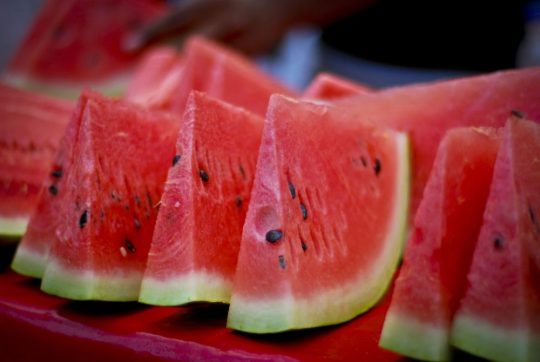
#fruit#watermelon#everyonelovestoeat#watermelon smoothies#food#foodies#foodlover#fruits and vegetables#recipes#fruit desserts#fresh fruit#hydrate yourself#antioxidants#heartagram#body fat loss#weight loss goals#self image#brain health#nutrition#healthy eating#healthy living#health and fitness#eating good#eating well#today on tumblr#good vibes#learnsomethingneweveryday#american culture#black american culture#black tumblr
3 notes
·
View notes
Text
The conversation is finally happening!! Thank you to those fighting for our health & being our voice. 👏🏽🔥🙌🏽
#bigpharma#food#nutrition#food is medicine#Health#healthy#healthy lifestyle#healthy foods#Healthy living#Disease#inflammation#chronic illness#chronicpain#cancer#autoimmune#heartdisease#hypertension#diabetes#disease prevention#guthealth#brain health#cellhealth#Heal#holistic#organic#holistic health#holistic healing
6 notes
·
View notes
Text
nutrition is like… hard
#mine#nuecesposting#body image tw#food#ive been trying to watch a very specific part of my nutrition for health reasons#and my brain is like. we could also go for weight loss thought *-*#and im like#no that never goes well. that literally never works out#if i lose weight as a result of this change in diet it is what it is#but same goes if i gain a bit#the point is very specific and it isnt to win the calorie game
3 notes
·
View notes
Text
What Are the Benefits of a Keto Diet for Specific Mental Health Conditions? An In-Depth Analysis
Find out where the ketogenic diet stands in the context of mental health in this comprehensive review. Find out why the ketogenic diet is an effective complementary treatment for illnesses such as anxiety, depression, bipolar disorder, schizophrenia, ADHD, and other mental disorders by affecting neurotransmitters, inflammation, and brain metabolism. Learn about the state of knowledge about ketone bodies and their potential applications.
#Keto Diet#Mental Health#Nutrition#Diet#Health#Wellness#Ketosis#Weight Loss#Brain Health#Cognitive Function#Anxiety#Depression#Bipolar#Schizophrenia#ADHD#Autism#Eating Disorders#Alzheimer's#Epilepsy#PTSD#Neurotransmitters#Inflammation#Gut Health#Microbiome#Alternative Medicine#Complementary Therapy#Metabolic Health#Blood Sugar
2 notes
·
View notes
Text
Mental Energy
What is Protandim NAD and how does it help with Energy, Focus and Clarity of Mind?
youtube
#vitamins#health#nutrition#supplements#healthy lifestyle#health & wellness#NAD#The Vitamins Shop#Supplements#Brain & Energy#Longevity#Anti-Aging#Biohacking#Nutrigenomics#Youtube
3 notes
·
View notes